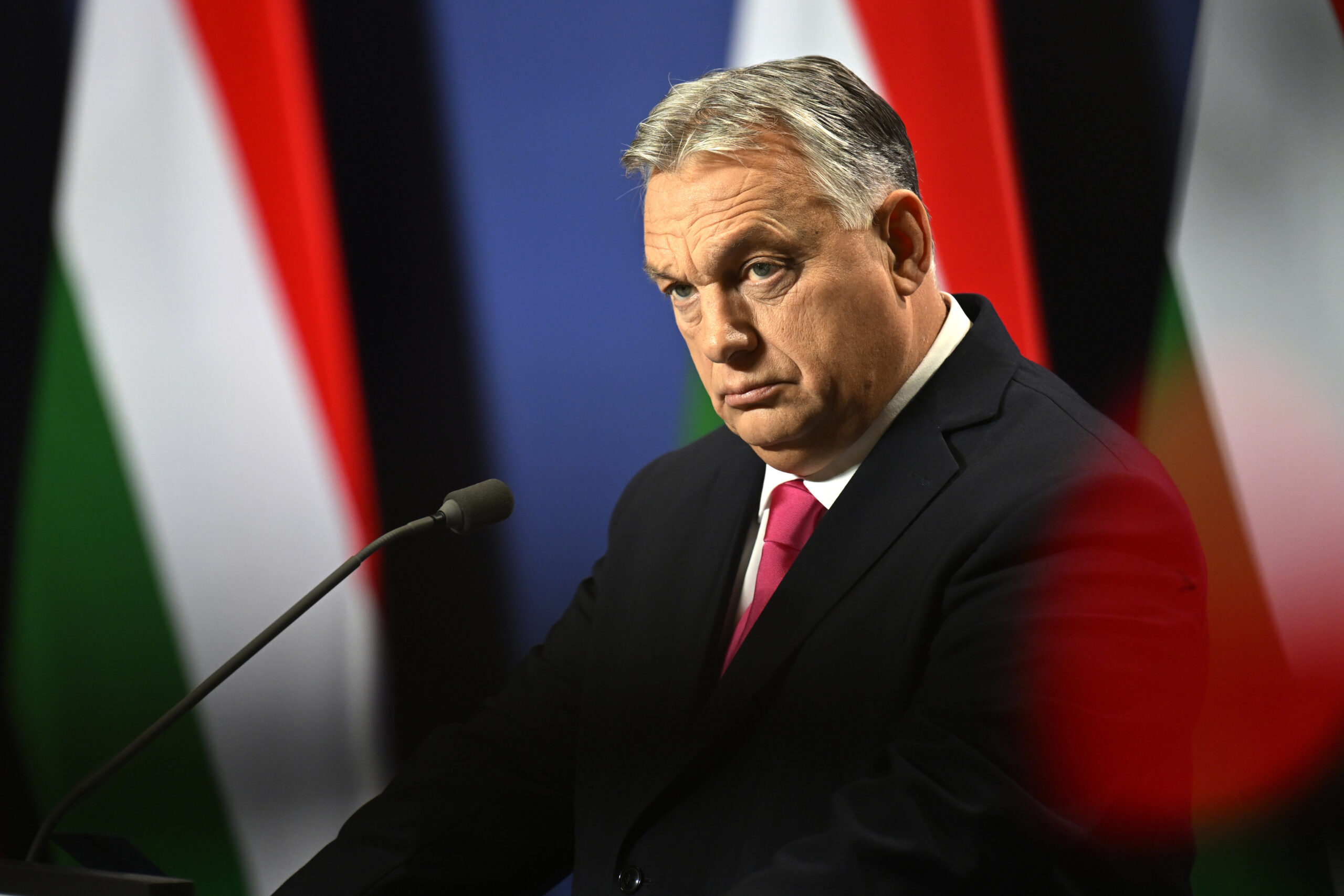(CN) — Hungarian Prime Minister Viktor Orbán, a bête noire of European Union politics and icon for the far right, is in the midst of an unfolding child sex abuse scandal that threatens to deeply damage his image as a champion of arch-conservative Christian values and expose corruption inside his government.
The scandal erupted on Feb. 2 when an online news outlet critical of Orbán, 444.hu, reported that a man received an undisclosed presidential pardon in April 2023 even though he was serving a sentence for covering up child sex abuse by the director of an orphanage outside Budapest. Under Hungarian law, pardons do not have to be made public.
Nearly two weeks later, the scandal is deepening and evolved into a major crisis for Orbán after Katalin Novák, a member of Orbán's ruling Fidesz party, resigned as Hungary's president on Saturday. In an emotional televised address, she took responsibility for granting the pardon.
Shortly afterward, Judit Varga, Orbán's former Justice Minister and his party's leader in upcoming European Parliament elections, announced she was quitting politics too because she'd signed off on the clemency.
But this crisis is far from over as protests mount, opposition parties demand answers, a former government insider turns into a defector and journalists dig into links between the pardon and Orbán's inner circle, including the Calvinist-oriented Hungarian Reformed Church he belongs to.
What makes this crisis potentially so damaging is how it undermines Orbán's carefully crafted image as Europe's defender of Christian family values, conservatism and strong nationalist governance.
It also may hurt Fidesz ahead of the European Parliament elections in June. Before the scandal broke, Fidesz was expected to win 14 of Hungary's 21 seats in the EU Parliament, bolstering an expected upsurge in far-right forces in Brussels.
For his many critics, the scandal is laying bare how Orbán has turned Hungary into a dangerous autocratic state during his 14 years at the helm. He's accused of controlling the media, shutting down critical voices, centralizing power and unlawfully enriching himself and those close to him.
Novák granted the clemency to Endre Kónya last April as part of a batch of pardons she issued during a visit to Hungary by Pope Francis.
In 2019, Kónya was convicted of forcing children at an orphanage about 19 miles outside Budapest to write and sign statements in which they revoked earlier claims of child abuse by the orphanage's director, János Vásárhelyi. Kónya was sentenced to three years and four months in prison.
“The original scandal in 2016 was particularly nasty nationwide, so public outrage ensued when the information about the clemency emerged,” said Ésik Sándor, a Hungarian lawyer and blogger, in an analysis.
Sándor said the scandal was particularly troublesome for the prime minister because Bicske is next to Orbán’s hometown Felcsút “where he built a stadium with a larger capacity then the population of the town.”
“The village's name is synonymous with Orbán’s clan,” the lawyer wrote.
Making matters worse, Orbán’s brother, Győző Orbán, was involved in a youth wrestling program at the orphanage, Sándor said.
After the pardon was revealed, Orbán sought to squash the brewing tumult by proposing a constitutional amendment forbidding pardons for child sex offenders.
But that wasn't enough and anger spread as protesters demanded Novák's resignation.
On Saturday, Novák cut short a trip she was on in Qatar, where Hungary's national water sports teams were playing, and flew back to Budapest. In her televised speech, she quit as Hungary's first woman president.
“I adopted a clemency decision which has left many people confused and unsettled,” she said. “They understandably want an explanation.”
She said she'd granted the clemency because she believed Kónya had not taken “advantage of the vulnerability of the children entrusted to his care.”
“I made a mistake,” she said, calling it a betrayal of her policy “of zero tolerance on child sexual abuse.”
Then came Varga's announcement she was leaving politics. Both women had put family-friendly policies at the core of their appeal.
But the two powerful women did not shed any light on why Kónya was pardoned and who lobbied on his behalf. Throughout the crisis, Orbán has stayed unusually silent and not commented publicly.
That's left news outlets digging and they have focused on a Calvinist bishop and adviser to Novák, Zoltan Balog. He has confirmed media reports that he supported granting clemency to Kónya.
Pressure is building on Orbán from elsewhere too.
In recent days, Varga's ex-husband, Peter Magyar, has taken to social media to denounce Orbán's government and accuse it of wide-scale corruption. He held several senior positions in state companies.
“I do not for one minute want to be part of a system in which the real culprits hide behind women's skirts,” Magyar wrote on Facebook, announcing his withdrawal from two public companies.
On Sunday, Magyar went further during an interview with Partizan, a YouTube channel critical of the government.
He called into question the vast wealth of Orbán's inner circle and alleged EU funds were being misappropriated. He asked whether it was “normal” that “a few families own half the country?”
An Orbán spokesperson said “the government does not concern itself with the desperate attempts of people in hopeless situations,” AFP reported.
Since returning to power in 2010 “no political scandal has had such a rapid and severe political impact” on Orbán, the Political Capital think-tank said in a report.
“What makes these events extraordinary is that one controversy leads to another and the government is simply unable to put an end to it,” the institute's analyst Robert Laszlo told AFP.
Courthouse News reporter Cain Burdeau is based in the European Union.
Subscribe to Closing Arguments
Sign up for new weekly newsletter Closing Arguments to get the latest about ongoing trials, major litigation and hot cases and rulings in courthouses around the U.S. and the world.









